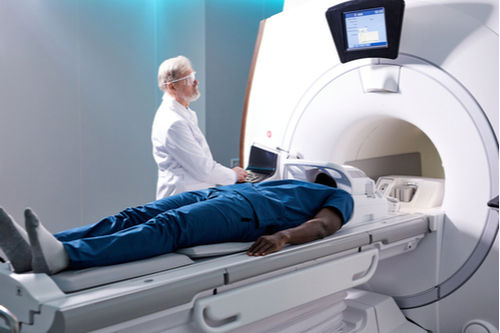General Health
Can Frequent Yawning Be A Symptom To A Health Problem?
3 min read
By Apollo 24|7, Published on - 06 June 2022, Updated on - 26 October 2023
Share this article
0
41 likes

Yawning is probably more contagious than a cold as seeing someone yawn makes us yawn too! Well, it's absolutely normal. Yawning is our bodies’ natural response to sleepiness or fatigue. Many people say they experience momentary relaxation immediately after yawning. However, if it happens frequently, especially when you are not tired, it may indicate an underlying condition. The article explores the possible medical causes of frequent yawning and potential treatment in detail below.
The Science Behind Yawning
Yawning can be described as a reflex action that involves opening the mouth wide, taking a rapid and deep breath, and then exhaling quickly. While fatigue, drowsiness, and repetitive or boring activities are thought to be common triggers for yawning, scientists still aren’t sure about why it occurs. However, some studies suggest that yawning helps lower the temperature of the brain.
Is Frequent Yawning A Medical Condition?
Certain medical conditions can trigger a vasovagal reaction, which leads to excessive yawning. A vasovagal reaction activates the vagus nerve. The Vagus nerve carries signals from the brain to the digestive system, heart, and other vital organ systems. Increased activity in the vagus nerve can slow down the pulse rate and drop the blood pressure significantly.
Depending on the underlying condition and its severity, frequent yawning may be accompanied by other symptoms such as difficulty in concentrating or breathing problems.
Possible Medical Causes of Frequent Yawning
Sleeping disorders that may cause frequent yawning are:
- Sleep deprivation: A condition marked by a lack of enough sleep
- Insomnia: A condition that is characterised by trouble falling asleep or staying asleep

- Sleep apnoea: A condition that affects your breathing when you are asleep
- Narcolepsy: A condition that makes you overly sleepy during daytime
Apart from this certain medications used to treat depression, such as selective serotonin reuptake inhibitors (SSRIs), can also make you tired and prone to frequent yawning. Though rare, frequent yawning may also be a symptom of a severe medical condition such as:
- Brain tumour
- Heart attack

- Epilepsy
- Multiple sclerosis
- Liver failure
- Bleeding around the heart
- Thermoregulatory disorders (inability to maintain body temperature)
Does Frequent Yawning Require A Treatment?
While it may seem normal to most of us, frequent yawning can be alarming. To diagnose the cause of frequent yawning, your physician will ask you certain questions about your sleeping patterns followed by certain diagnostic tests such as electroencephalogram (EEG) and magnetic resonance imaging (MRI). While EEG will help the physician look for signs of epilepsy and other neurological conditions, MRI will help them detect abnormal changes in the spinal cord, brain, heart function, and any cardiac abnormalities.

Treatment for frequent yawning usually depends on the underlying cause.
- If medications are responsible for yawning, your physician will either lower the dose or prescribe an alternative medication.
- If a sleep disorder is causing excessive yawning, your physician will likely prescribe a sleep-aid medication or technique.
Lack of enough sleep can make you fatigued and, as a result, you may yawn more than usual. However, if you are yawning frequently, then you should consult a physician. In some cases, it can be a symptom of a sleep disorder or a condition that may require medical assistance.
Need more information?
Medically reviewed by Dr Sonia Bhatt.
General Health
Leave Comment
Recommended for you

General Health
The Role of Zinc in Promoting Better Health
Zinc is an essential nutrient that supports growth during childhood and maintains the functioning of the immune system.

General Health
Do You Know That Your Body Can Harm Itself? Know How You Can Reduce That Risk!
Autoimmune diseases develop on their own and can be life-threatening. Read to know the early signs and the ways to prevent them.

General Health
Flu Vaccine: When Is The Right Time To Take It?
The common flu occurring in most people during the flu season can be prevented through the flu vaccine. The flu vaccine can be taken all through the year, particularly before or during the flu season, under a doctor's guidance.
Subscribe
Sign up for our free Health Library Daily Newsletter
Get doctor-approved health tips, news, and more.
Visual Stories

Could There Be More to Your Snore?
Tap to continue exploring
Recommended for you

General Health
The Role of Zinc in Promoting Better Health
Zinc is an essential nutrient that supports growth during childhood and maintains the functioning of the immune system.

General Health
Do You Know That Your Body Can Harm Itself? Know How You Can Reduce That Risk!
Autoimmune diseases develop on their own and can be life-threatening. Read to know the early signs and the ways to prevent them.

General Health
Flu Vaccine: When Is The Right Time To Take It?
The common flu occurring in most people during the flu season can be prevented through the flu vaccine. The flu vaccine can be taken all through the year, particularly before or during the flu season, under a doctor's guidance.